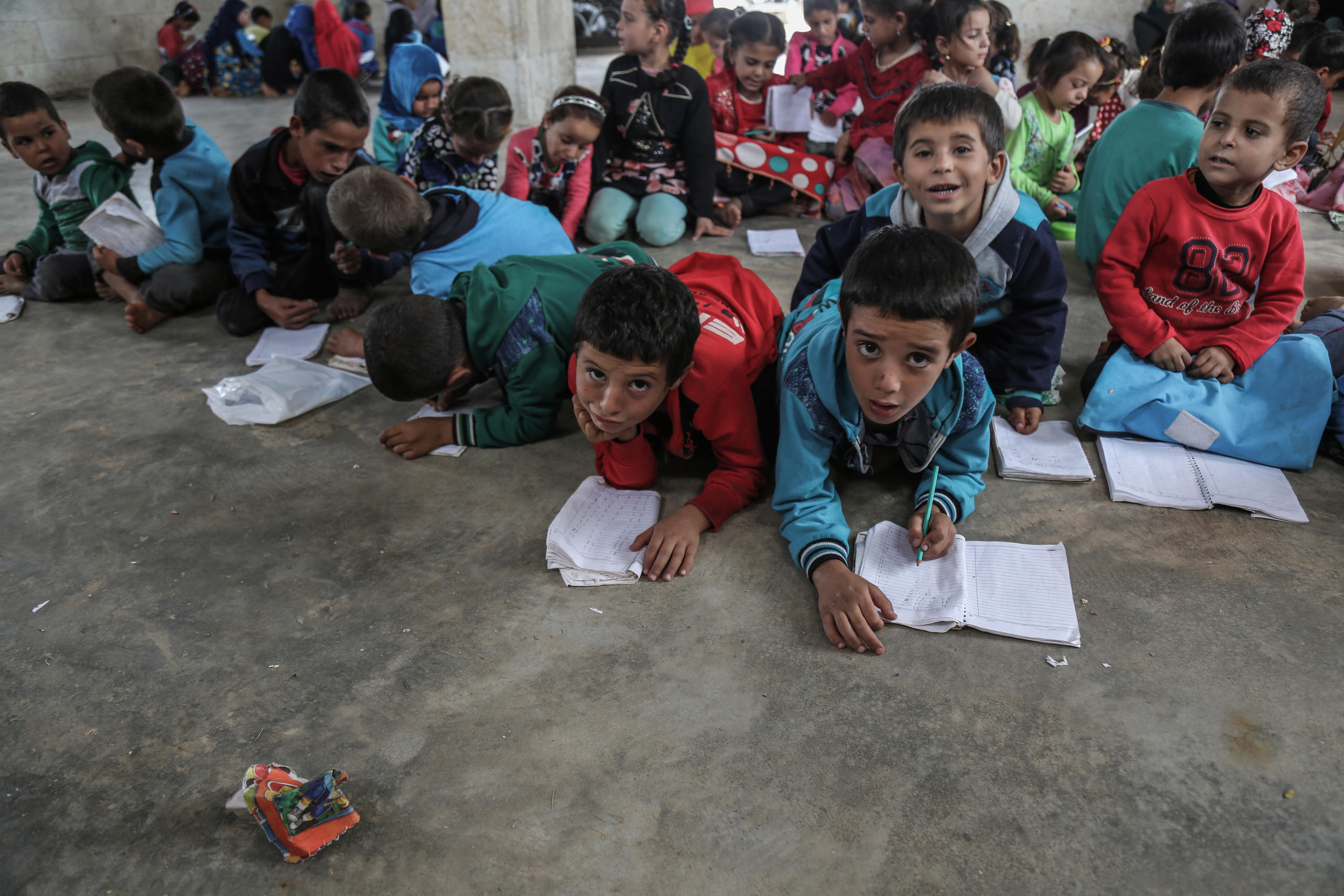For young migrants, the right to education is a mirage

On the occasion of the publication of a UNESCO report, Swiss development cooperation specialists discuss the subject of education of displaced children.
There have not been so many migrants in the world since the Second World War. And half of them are children. How to ensure their right to education? On the occasion of the Swiss launch of UNESCO’s 2019 Global Monitoring Report on Education, Daniel Endres of the United Nations High Commissioner for Refugees considers the situation “catastrophic”.
Returning from a trip to southern Ethiopia, a region populated by three million people, including one million refugees, Ambassador Thomas Gass, Deputy Director of the SDC, the Swiss agency for development cooperation, said he was “shocked” by his visit to a school there.
“Initially, the school was planned for a settlement of 5,000 inhabitants, but now there is a camp of 70,000 refugees nearby. The aid workers hastily built two additional sheet metal rooms, but that is obviously not enough. Students are crowded at 100 per class and under these conditions, teachers can do little more than babysitting,” he said.
According to him, the objectives of the UNESCO report are also those of the SDC. Because the right to education is in principle guaranteed by international treaties and its implementation is part of the United Nations’ sustainable development goals.
“When the education of refugees and migrants is neglected, a huge potential is wasted,” states the SDC, which wants to help “prevent the emergence of lost generations”.
Swiss do their bit but…
In concrete terms, Swiss development cooperation is active in Jordan, Niger and Nepal. The projects benefit around 190,000 children and young adults who have fled the war in Syria, the violence in Boko Haram or who are being trained to work in the Gulf countries.
The UNESCO report also cites classes for migrant in Zurich as a positive example. But in Switzerland, “a rich country that does not have many refugee children”, the recommendations of the report are not always fully implemented, claims Maria Zumbuehl of the University of Bern.
For example, while the canton Basel City offers free German courses outside the school system to migrants, canton Thurgau wanted them to pay for it, even at school. Recently, Thurgau was asked to change its practices by the Federal Court in the name of the right to free basic education, guaranteed by Article 19 of the constitution. But the matter does not stop there, since the right-wing faction of the Thurgau parliament obtained a majority to launch an initiative to amend the federal constitution.

In compliance with the JTI standards
More: SWI swissinfo.ch certified by the Journalism Trust Initiative









You can find an overview of ongoing debates with our journalists here . Please join us!
If you want to start a conversation about a topic raised in this article or want to report factual errors, email us at english@swissinfo.ch.